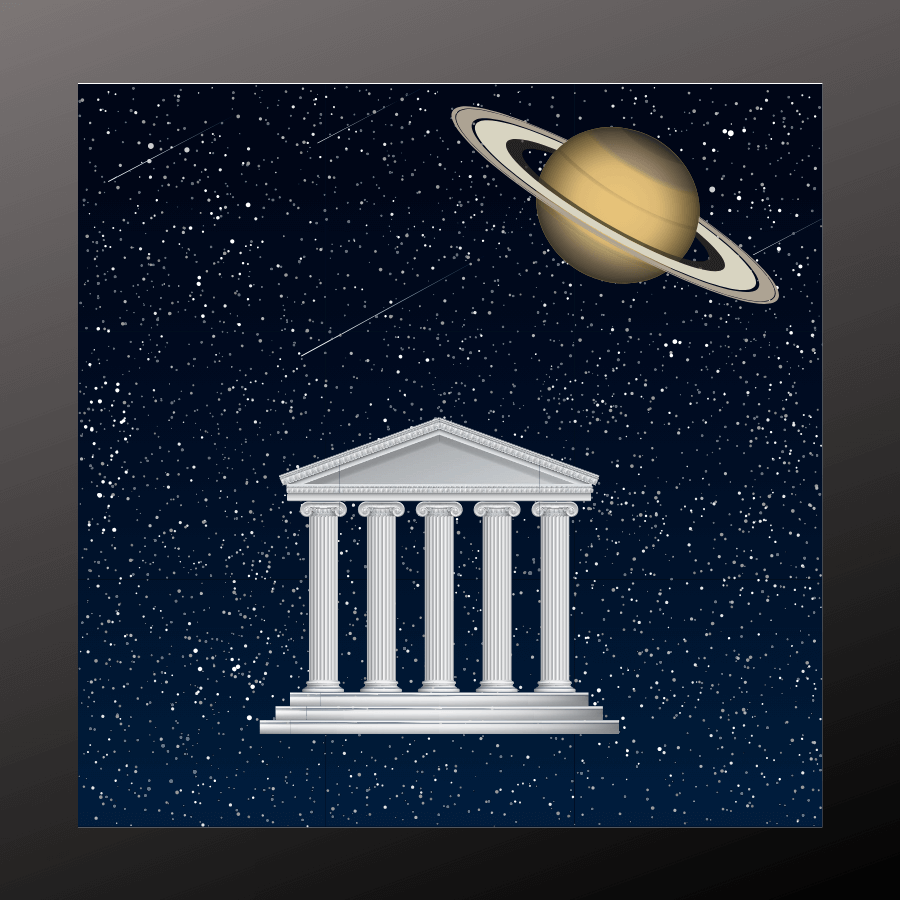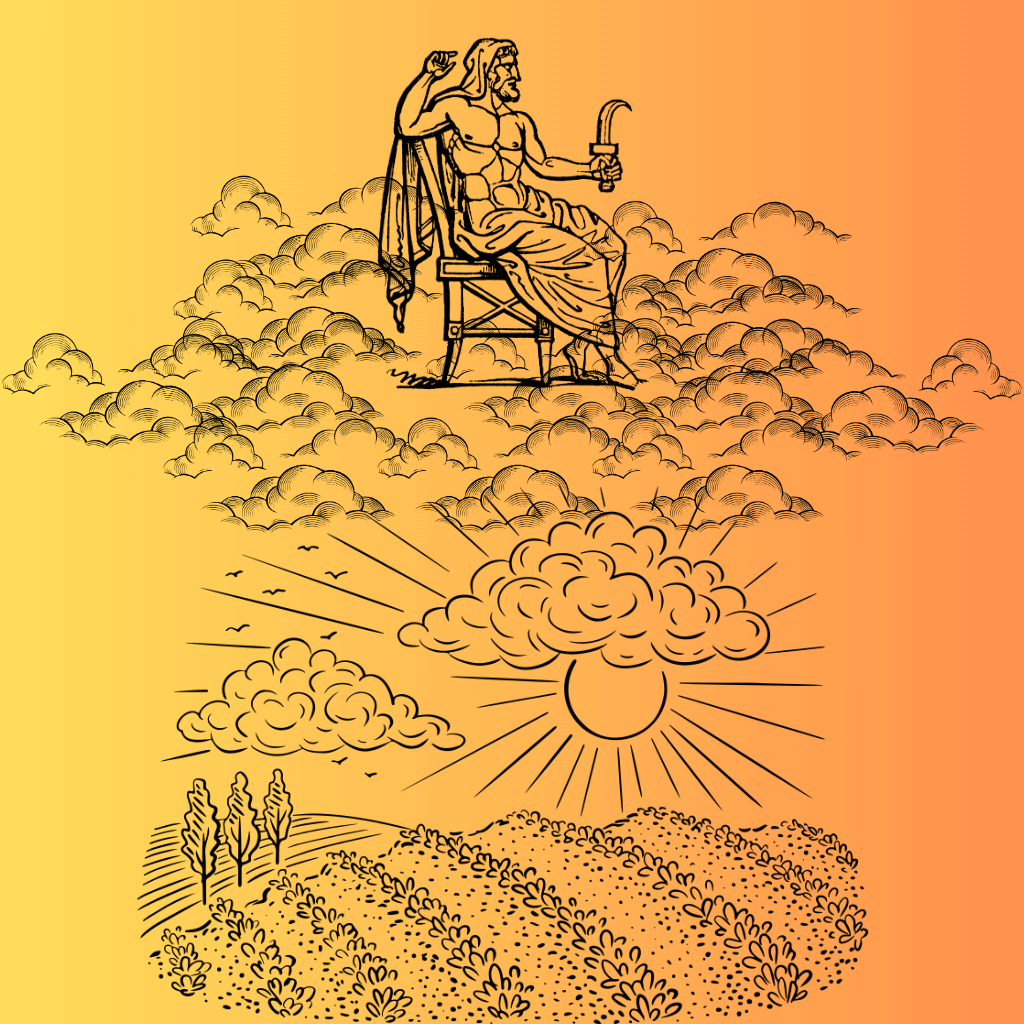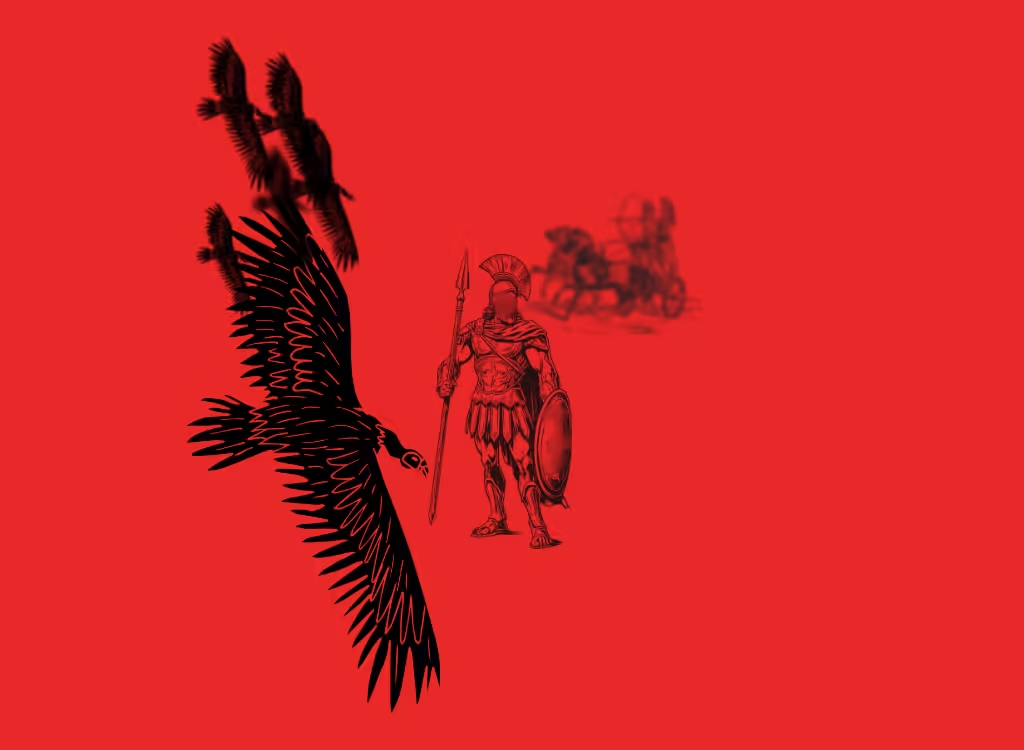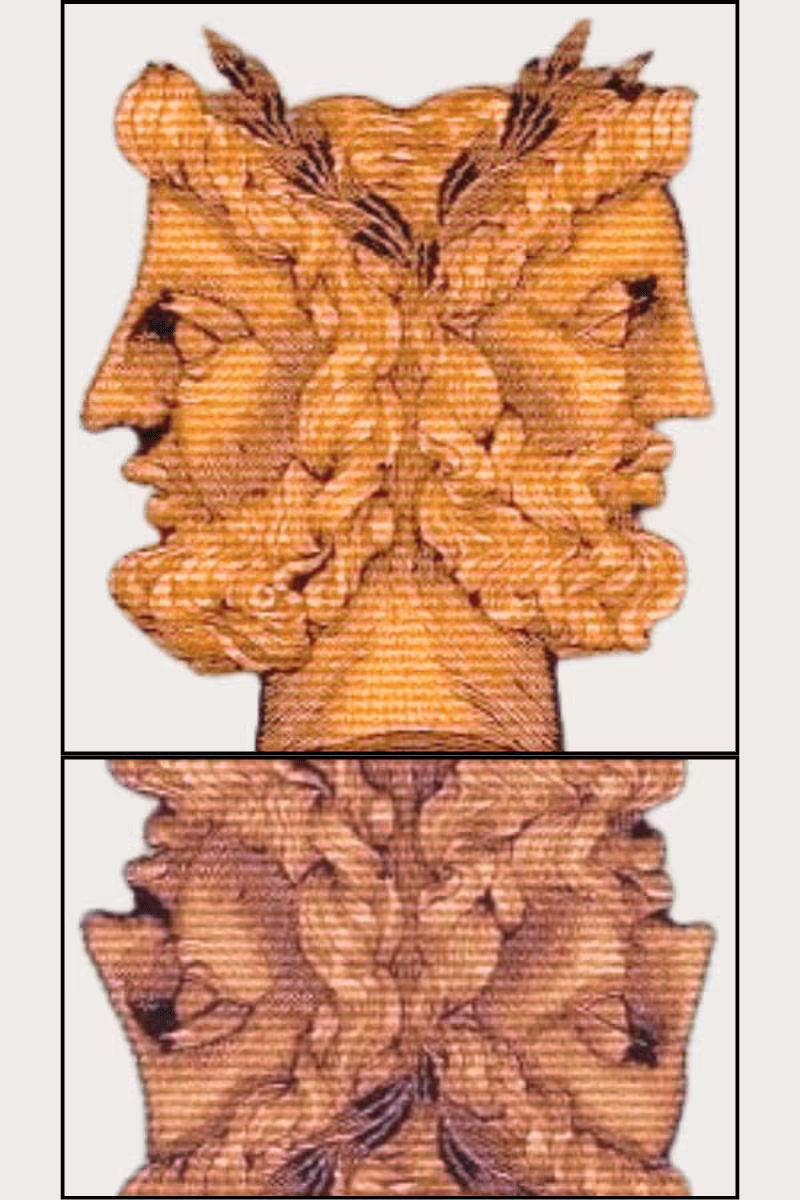
The Roman god Janus, in Roman Mythology, is a god of ancient and original origin. For this reason, unlike many gods in Roman Mythology, Janus Roman God does not have any equivalent in Greek Mythology.
In the Early Roman Period, when the belief in the simple family was widespread, god Janus was defined as a divine power protecting the thresholds of houses. According to some views, according to Roman tradition, he was initially an early divine being, and as religion developed, he became deified.
What god is Janus?
In Roman Mythology, Roman god Janus is the guardian of the gates, the god of the beginnings and the endings. The god Janus is usually depicted as having two heads. His two faces have the ability to see both the past and the future. According to some sources, this ability was given to Janus by the god Saturn.
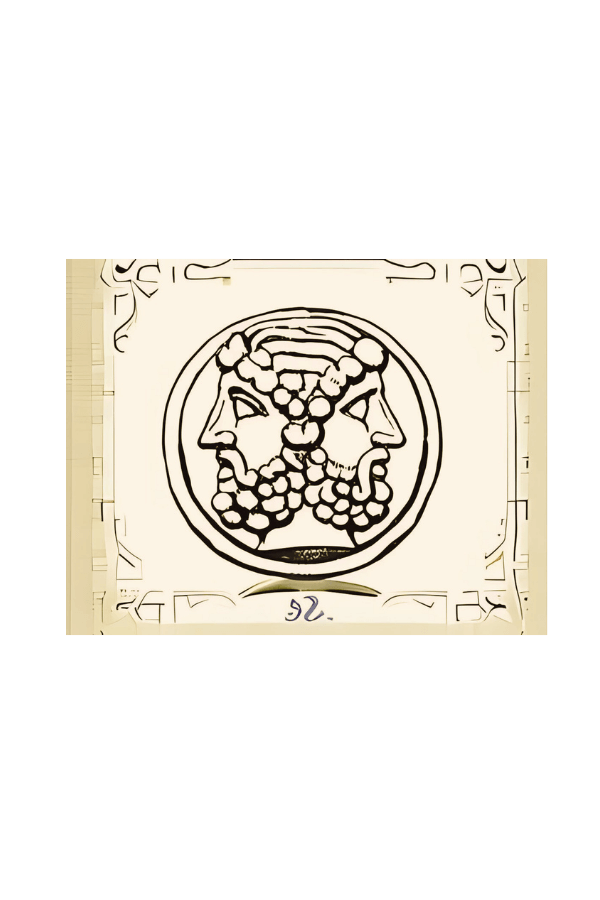
The origins of Janus are disputed, but the deity is considered to be an ancient god of original origin. For this reason, Roman God Janus does not have any equivalent in Greek Mythology or a name in Greek Mythology.
Roman god Janus is also a god that represents the beginning of concepts that have no boundaries. For example, the beginning of a new year. The English word “January” is also said to come from Janus.
Once upon a time, after Julius Caesar became Emperor of Rome, he initiated a calendar change. During this change, he started the new year in January in 45 BC, whereas until then the new year had started in March. Although this is not directly related to Janus (Caesar worked with the astronomer Sosigenes on this issue and they calculated how many days a year would be), it is consistent with the Roman god Janus as the beginning and end of the new year, which he represents and is the god of, or the beginning and end of concepts that have no boundaries.
The Roman God Janus is also a god invoked at the beginning of important undertakings such as harvest, planting, marriage, birth and other important events in life.
The festival of the Roman god Janus takes place in January. According to some Roman thinkers, the Roman god Janus is an antecedent god associated with the creation of the world and the organization of time and space.
Who is the Roman god Janus?
In Roman mythology, the god Janus is known as the god of beginnings, changes, gates, transitions and endings. The god Janus is often depicted with two faces, one facing the past and one facing the future.
The two faces of Janus symbolize his ability to see both the past and the future in time and to be the god of transitions.
The god Janus is an important deity in Roman life and culture. Janus played an important role in all kinds of beginnings and transitions in Roman life. He was invoked at the beginning of each day, month and year. This makes him particularly important in the Roman calendar. January, the first month, bears his name. For the Roman God Janus, whose festival is also in January, the New Year’s Day in January is sacred. On this day, Romans exchanged gifts, performed rituals and made resolutions for the coming year.
As the god of beginnings, Janus was the first god to be invoked in religious ceremonies even before Jupiter, the king of the gods. This practice, known as “ianus geminus”, underlines his importance in Roman religious life.
The gates of Janus’ temple in the Roman Forum served as a symbolic indicator of Rome’s state of war or peace. When Rome was at war, the gates would remain open; when Rome was at peace, they would be closed. This practice continued during the Imperial period. This is actually related to a myth.
Janus is a god who is not very much involved in Roman Myths, but according to legends, he took part in the foundation of the city of Rome. Apart from this, the only myth in which the Roman God Janus is mentioned is the Sabine Myth.
According to the Sabine myth; Janus protected the Romans by spraying water on the Sabine men who came to take back their women kidnapped by the Romans. Because of this story, it was believed that Janus would come out of the temple to protect Rome during a war, so the doors of his temple were left open when Janus was expected to come out of the temple to help the Romans. If there was no war and it was a time of peace, the doors of the temple would remain closed.
In the early Roman period he emerged as Ianus Quirinus to serve specific purposes, such as initiating war in private and public ceremonies.
Given his association with crossings and passages, Janus became linked to commercial activities. Many believe that the Roman coin ‘as’ has a two-faced image of Janus on one side. Again, due to this feature of Janus and his association with trade, some Roman professional guilds, especially those involved in travel or trade, adopted Janus as their patron deity.
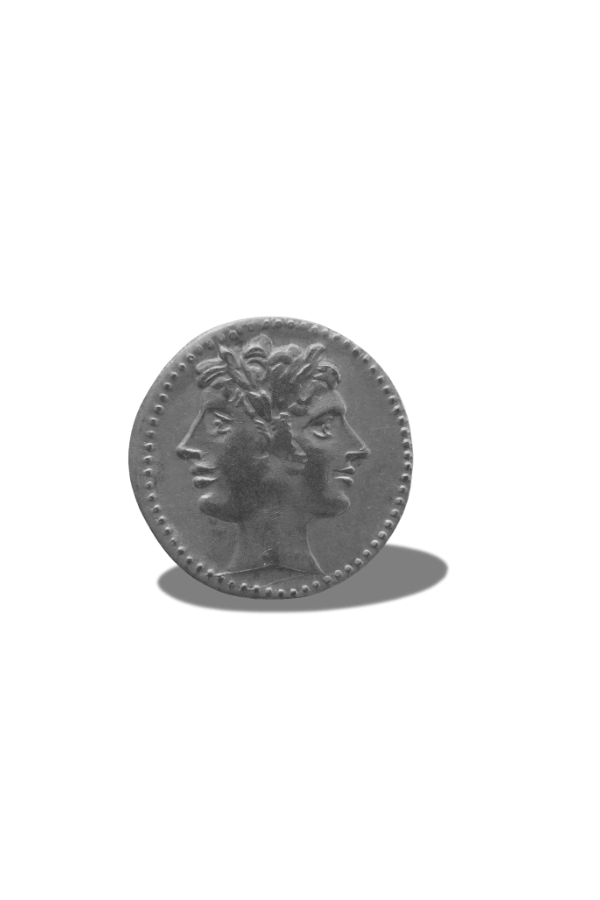
In Roman houses, the main door (ianua) was considered sacred to Janus. This extended the influence of the Roman god Janus into everyday domestic life.
Roman farmers would invoke Janus at the beginning of planting or harvesting, seeking his blessing for a successful agricultural cycle.
As a god who could look both ways, Janus was sometimes invoked when making treaties or contracts, symbolizing transparency and honesty.
Some Roman thinkers saw Janus as a primordial deity associated with the creation of the world and the organization of time and space. According to some authors, it was Janus who invited Saturnus (Saturn), who was expelled by his son Jupiter (Zeus) in Greece, to Rome. According to Ovid, the god Janus is the guardian of the world.
The god Janus is often depicted holding a key and a staff. The fact that the god Janus holds a key in his hand symbolizes that he is the god of passages. Since he is the god of passages and gates, the responsibility for these passages and gates also belongs to Janus. The staff in god’s hand emphasizes the importance of the god on the roads.
The god Janus is depicted in sculpture and visual texts as a middle-aged, bearded man with a double face. This describes the god’s ability to see in both opposite directions, to look and know both the past and the future. The double-headed god Janus is the god of beginnings and endings, as he can see in two different directions at the same time. He is also a god representing change and transitions in Roman mythology.
There is no complete information about Janus and his origin. Similarly, there is no clear information about his family tree or his life. Janus is a god who is not personalized much because he is defined and thought as a divine and powerful being.
According to some sources and accounts, he is the father of Tiberinus/Tiberius (after whom the Tiber River is named) and according to others he is the father of Tiberinus and Fons (god of water sources).
Interesting Facts about the God Janus, Roman God:
The god Janus influenced Roman culture and life during the Roman period, and remains important today with his bi-directional nature and his ability to see the past and the future. The name of the Roman god Janus, which is used or referred to in different ways in today’s popular culture, has also gained a place in the scientific world by giving his name to terms to describe various situations.
The influence of the Roman God Janus on contemporary science and art, or the use of his name to describe certain terms and situations, is based on the mythological characteristics of the God Janus. One of these is duality, or more accurately, duality or two-way balance. Similarly, the fact that the god looks in both directions reflects a kind of duality and complementary balance. Another one is transitions.
The Roman god Janus is, after all, the god of transitions and gates. Naturally, he is used as a metaphor in literature to describe change and transitions, bridging between two states, and his name is given in the field of science in accordance with these situations.
To mention some of them;
1- One of the moons of the planet Saturn is named after the Roman god Janus. Janus, one of Saturn’s moons, is a small and irregularly shaped moon that shares its orbit with another moon called Epimetheus. These two moons change their orbits every four years. For this reason, it was actually appropriate to name this small moon Janus, considering the God Janus’ relationship with transitions and dualities.
2- In biology, Janus is used to indicate organisms and structures with two different characteristics and appearances.
There are Janus kinases (JAK), which are also involved in biology and medical science. To briefly talk about Janus kinases; they are a family of enzymes involved in cell signaling. JAKs, or Janus kinases, play an important role in immunity, cell growth and development. They are targets for the treatment of some cancers and autoimmune diseases.
They are named after Janus because they have two similar phosphate transfer domains.
3- Janus particles, named after the god Janus in the field of chemistry, are special types of nanoparticles/micro particles that have two or more physical properties on their surfaces. These particles in Chemistry and Materials Science are special nanoparticles that have two separate faces with different properties. They are so named because their dual structure is similar to the duality represented by the God Janus. They have potential uses mostly in drug delivery and sensors.
4- Psychology and neuroscience have also been influenced by the Roman god Janus. For example, the Janus-faced nature of memory is a term used to describe how memory can sometimes both help and hinder solving a problem.
Another term, the Janus laterality model, is a model that explains the complementary spatialization of the brain’s hemispheres.
5- Did you know that there is a programming language called Janus?
6- There are various literary references to the Roman God Janus. The most famous of these is James Joyce’s Finnigan’s Wake, one of the most difficult works to read. Although there is no direct reference to Janus, it can be seen that in literature and contemporary music, video games and artworks, the God Janus is inspired by his duality, being the god of passages and gates, seeing both the past and the future, and his head looking in two different directions.
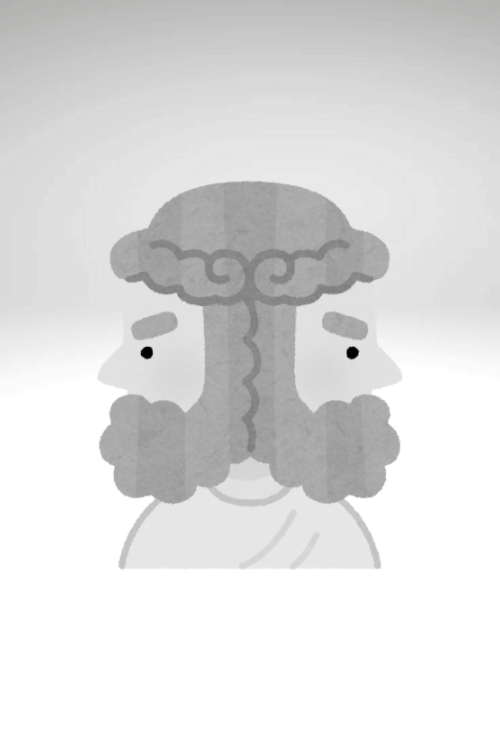
Sources: Roma Mitolojisi / Derya Şahin
The Concise Dictionary of Greek and Roman Mythology /Michael Stapleton
Ancient Roman Mythology /Peter Kamara
